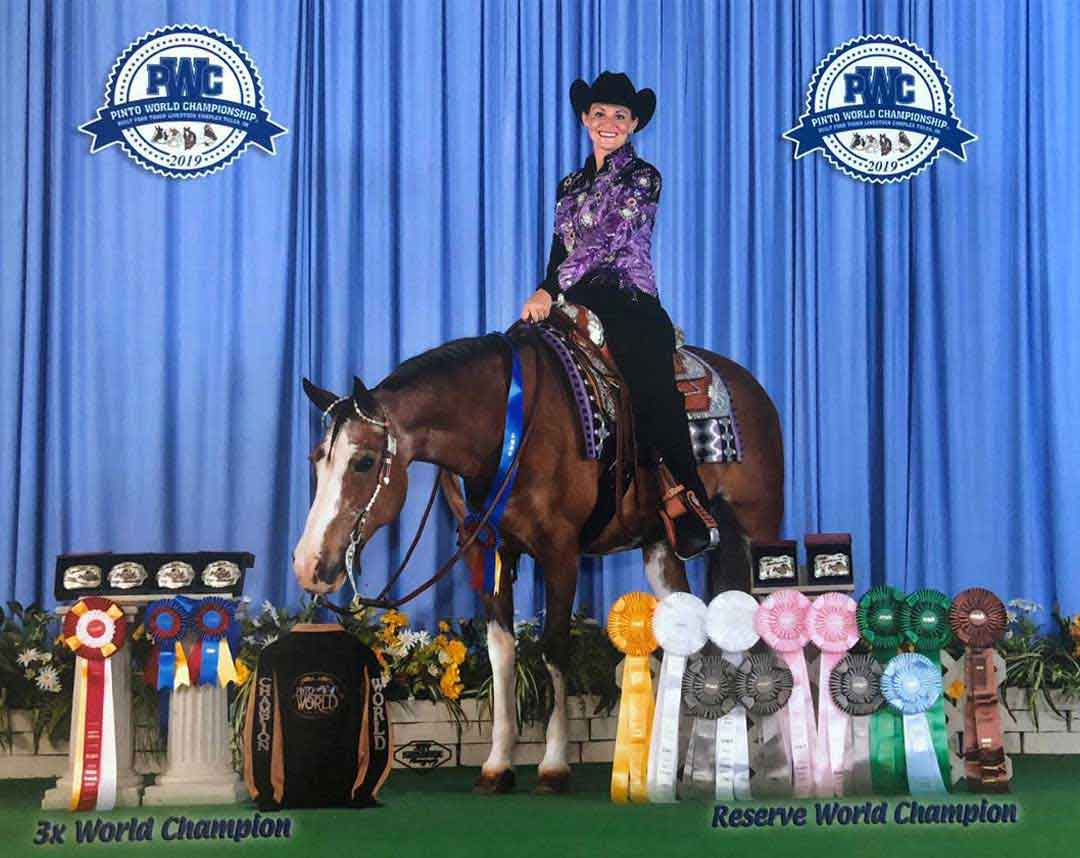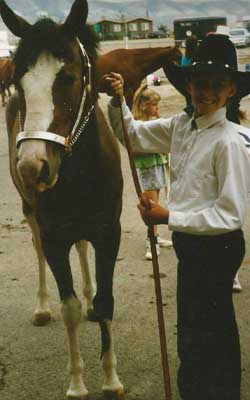
Equine wellness couldn't be more important to Kelly Mancinelli, DVM, who has enjoyed nearly 25 years of riding and competing with her childhood Pinto mare, Singin' Saddie Sue.
Horse and World Champion
"I remember the day I was supposed to sit on Saddie for the first time. I was actually sick with the flu, but I didn't care. I went out and did my lesson because I was so excited to ride her," Dr. Kelly Mancinelli said.
Fast forward to 2019, and Singin' Saddie Sue is 25 years old. Kelly is still in the saddle, and the two continue to compete across the country. Of many accolades, Saddie is an eight-time 4H champion, 11-time Congress Champion and eight-time World Champion. Together, they have won several show high-point championships, as well as 200 belt buckles, 150 trophies and six show saddles.
Saddie is the perfect example that when it comes to "senior" performance horses, age is just a number when horse health is prioritized. While there are special considerations for senior horses, risks such as age-related diseases can be managed through preventative care and trusted medications.

Like more than 30 percent of horses and ponies over 15 years old, Saddie has experienced PPID (Pituitary Pars Intermedia Dysfunction), formerly known as Cushings Disease. PPID causes the horse's pituitary gland at the base of the brain, which controls body functions through hormone levels, to work double-time. Saddie's weight started to increase. And she developed fat deposits on her neck, above her shoulders and tail head.
"A few weeks after the 2018 Pinto World Championship Show, Saddie came up bilaterally lame in the front end. We took her to Weatherford Equine, and her coffin bones in her front feet were mildly rotated," Dr. Mancinelli said. "We checked her for Cushings at that time, and she was positive for the disease."
Saddie is administered Prascend daily and is now at a healthy weight.
Dr. Mancinelli shares tips to keep senior show horses healthy and happy:
- Prioritize preventative medicine, and run regular bloodwork to help prevent horse health issues.
- Keep senior horses on a quality diet to help ensure excellent gut health.
- Schedule routine equine dental exams with your veterinarian to help maintain weight and comfort.
- "Baby" your senior show horse, and be cautious of not overworking them. They know their job.
In every show photo, Singin' Saddie Sue perks her ears in contentment, happy to continue doing what she loves.
"I'm so proud of her; Saddie is one in a million," Dr. Mancinelli said. "Listen to your horse. They'll let you know if they don't want to do this anymore."
This article originally appeared on Valley Vet and is published here with permission. Valley Vet Supply was founded in 1985 by veterinarians for people just like you - people who want the very best for their four-legged friends and livestock.
There are more informative articles in our section on Health & Education.

































